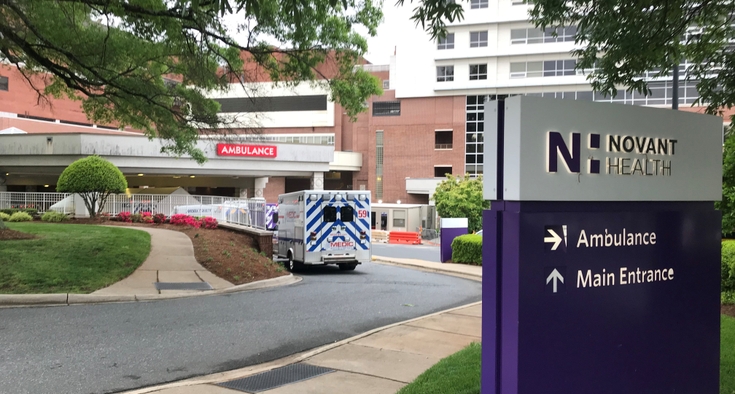The holidays can be hard on your heart.
Heart attacks spike during Christmas and New Year’s Day, when many Americans are prone to excessive eating and drinking, stress from travel and family gatherings, less exercise and sleep, and the pressure to get everything done.

Dr. Kobina Wilmot, a cardiologist at Novant Health Heart & Vascular Institute - Salisbury, said there is another major reason for the surge in heart attacks: people delay seeking medical care until after the holidays. Some don’t want to interfere with family plans; others fear being hospitalized during the holiday season.
“They may have symptoms of problems and say, `I can wait until January to take care of that,’ or ‘I'll wait until later,’” Wilmot said. “You get sicker and by the time you're in the hospital, you're further along than you normally would be. During the holidays, there often is an upheaval in your lifestyle. People are running to go places and are doing things they don’t normally do.”
Cardiac death is almost 5% higher during the holidays, the American Heart Association reports. A heart attack usually occurs when a blood clot blocks blood flow to the heart. Without blood, tissue loses oxygen and dies. Heart disease is the leading cause of death for men and women in the United States. In 2021, about 695,000 people in the U.S. died of heart disease.
Here are four causes of heart attacks during the holiday season to be mindful of.
- Excessive eating and drinking: Holiday food often has increased sodium, which increases blood pressure and forces your heart to work harder. Let’s face it, plenty of people tend to overeat during the holidays, when food is inviting and plentiful. Too much alcohol consumption isn’t good for heart health, either.
- Emotional stresses: People without a strong support system can struggle with being alone during the holidays or the reminder of family members who’ve passed away. Depression and anxiety can have a negative effect on your heart.
- An increase in respiratory diseases: Respiratory viruses normally flourish during the winter months.
- Skipping medications: Travelers sometimes forget to pack their medications or face delays trying to get refills far from home.
How to reduce your chance of heart attack during the holidays
To reduce your risk of heart issues during the holidays, Wilmot recommends relaxation techniques to relieve stress, such as biofeedback and mindfulness mediation. He also emphasizes that it's important to continue managing the medical conditions you monitor during the rest of the year.
Find the heart care you need
“Good surveillance is still important,” Wilmot said. “If you travel, for instance, take your blood pressure cuff with you. Make sure you have your diabetes monitor to know your blood-sugar levels. Take your medicines as you normally would. Make sure you have a connection, in advance, with a pharmacy wherever you’re going to be.”
When traveling, try to continue to exercise and work movement into your day. Also be mindful of the menu. If you’re preparing food, minimize the salt and let each person choose how much they want to apply themselves. Eat in moderation, despite the abundance of all types of holiday foods, especially carbohydrates. Drink water before and during meals, too, which can make you less prone to overeat.
“There's so much food everywhere, and that’s part of the jolliness of the holidays,” Wilmot said. “But you have to continue to think `Do I really need this?’ Sometimes when we think we're hungry and want to snack on something, we’re really not hungry. We're just tempted.”
An important thing to remember: If you have chest pain, don't wait. Call 911. The smartest thing you can do when experiencing heart attack symptoms is to seek immediate health care. Delaying heart care can mean a worse outcome, even permanent disability or death.







